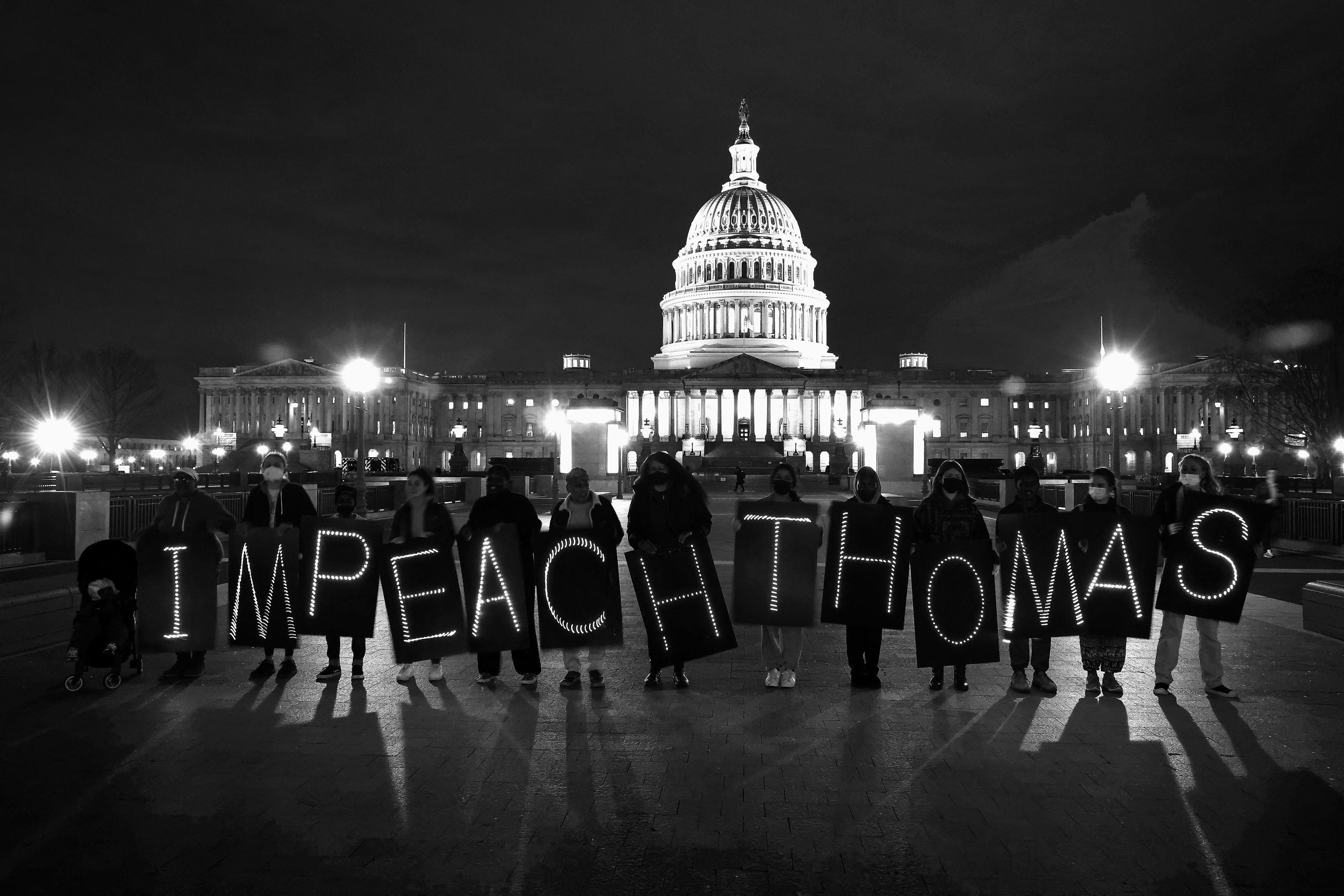
Legal experts were surprised when Johnny Depp was handed down a legal win in the trial against Amber Heard—“[o]ne reason…Defamation is extremely difficult to prove under existing U.S. law.” But, despite Depp’s recent legal victory, Supreme Court “Justice Clarence Thomas thinks the burden of proof should be significantly lightened,” for such cases.
The case in question is Coral Ridge Ministries v. the Southern Poverty Law Center (SPLC), wherein the plaintiff, “now D. James Kennedy Ministries,” alleged that the SPLC caused harm by labeling them as an “anti-LGBT hate group.” The issue hinged on whether the high court would reexamine the actual-malice standard, which has been long-standing precedent since the 1964 New York Times v. Sullivan. The case holds that “if a defamation plaintiff is a public person, they have an additional burden to prove the defendant knew the defamatory statement was false, or at least disregarded that possibility.”
In laymen’s terms, “public figures suing for defamation must prove that the defendant acted with ‘actual malice’ and made a reckless decision.”
On Monday, the Court declined to take on the Coral Ridge case. In his dissenting opinion, Thomas wrote, “We have never inquired whether The First or Fourteenth Amendment, as originally understood, encompasses and actual-malice standard.”
“This case is one of many showing how New York Times and its progeny have allowed media organizations and interest groups to cast false aspersions on public figures with near impunity.”
Thomas continued, “I would grant certiorari in this case to revisit the ‘actual malice’ standard,” writing further that “SPLC’s ‘hate group’ designation lumped Coral Ridge’s Christian ministry with groups like the Ku Klux Klan and Neo-Nazis…It placed Coral Ridge on an interactive, online ‘Hate Map’ and caused Coral Ridge concrete financial injury by excluding it from the AmazonSmile donation program. Nonetheless, unable to satisfy the ‘almost impossible’ actual-malice standard this Court has imposed, Coral Ridge could not hold SPLC to account for what it maintains is a blatant falsehood.”
Under Thomas’ legal reasoning, Coral Ridge is considered a “‘public figure’…which forces it to prove multiple elements in order to counter SPLC’s argument that it designated the group with First Amendment protections.”
This isn’t the first time that Thomas has expressed a desire to revisit this established standard. Justices Neil Gorsuch and Thomas wrote similar dissents in another defamation case, which the Court also declined to hear in 2021.
“The lack of historical support for this Court’s actual-malice requirement is reason enough to take a second look at the Court’s doctrine,” Thomas wrote back then. “Our reconsideration is all the more needed because of the doctrine’s real-world effects. Public figure or private, lies impose real harm.”






While over the past several months district courts have continued to reinforce the 1964 New York Times “precedent, most notably during Sarah Palin’s defamation suit against the New York Times,” wherein “[t]he district judge and the jury determined that…Palin failed to prove actual malice.” Last week’s decision that overturned Roe v. Wade made it clear that the Court “is willing to overturn long-standing precedents.”
The Coral Ridge case is simply the most recent in a long list “of first amendment arguments and cases sweeping the country as it wrestle[s] with free speech issues” which are exposing “millions of Americans to the tricky legal guardrails surrounding” interpretations of the First Amendment.







